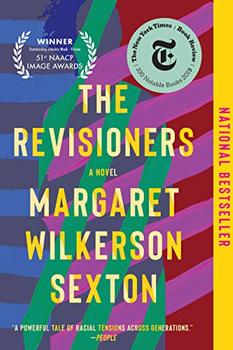Summary | Excerpt | Reading Guide | Reviews | Beyond the book | Read-Alikes | Genres & Themes | Author Bio

A Novel
by Toni MorrisonA powerful tragedy distilled into a jewel of a masterpiece by the Nobel Prize–winning author of Beloved and, almost like a prelude to that story, set two centuries earlier.
In the 1680s the Atlantic slave trade was still in its infancy. In the Americas, virulent religious and class divisions, prejudice and oppression were rife, providing the fertile soil in which slavery and race hatred were planted and took root.
Jacob is an Anglo-Dutch trader and adventurer, with a small holding in the harsh north. Despite his distaste for dealing in “flesh,” he takes a small slave girl in part payment for a bad debt from a plantation owner in Catholic Maryland. This is Florens, “with the hands of a slave and the feet of a Portuguese lady.” Florens looks for love, first from Lina, an older servant woman at her new master’s house, but later from a handsome blacksmith, an African, never enslaved.
There are other voices: Lina, whose tribe was decimated by smallpox; their mistress, Rebekka, herself a victim of religious intolerance back in England; Sorrow, a strange girl who’s spent her early years at sea; and finally the devastating voice of Florens’ mother. These are all men and women inventing themselves in the wilderness.
A Mercy reveals what lies beneath the surface of slavery. But at its heart it is the ambivalent, disturbing story of a mother who casts off her daughter in order to save her, and of a daughter who may never exorcise that abandonment.
Excerpt
A Mercy
Don't be afraid. My telling can't hurt you in spite of what I have done and I promise to lie quietly in the dark--weeping perhaps or occasionally seeing the blood once more--but I will never again unfold my limbs to rise up and bare teeth. I explain. You can think what I tell you a confession, if you like, but one full of curiosities familiar only in dreams and during those moments when a dog's profile plays in the steam of a kettle. Or when a corn-husk doll sitting on a shelf is soon splaying in the corner of a room and the wicked of how it got there is plain. Stranger things happen all the time everywhere. You know. I know you know. One question is who is responsible? Another is can you read? If a pea hen refuses to brood I read it quickly and, sure enough, that night I see a minha mãe standing hand in hand with her little boy, my shoes jamming the pocket of her apron. Other signs need more time to understand. Often there are too many signs, or a bright omen ...
I was quite disappointed by A Mercy. There, I've said it. It feels
sacrilegious to speak ill of such a worthy book and such an exalted author. But
if a novel can be at once worthwhile and disappointing, this one is.
Morrison beautifully, terribly renders the world of America in the 1680s. It is
a world in which it is lawful for a man to beat his wife after nine o'clock, a
world in which the sight of a black girl is still rare enough to cause white
children to scream and white women to cross themselves. But it is a world in
which none of Morrison's characters—black, white or native; free, indentured or
enslaved—have agency, and therefore it is a world without action. Horrific
events and acts of small mercies occur. The characters move, but it is the
zeitgeist blowing through them that animates them. A Mercy is a like a
three-dimensional oil painting that was made to illustrate a point: "There is no
protection. To be female in this place is to be an open wound that cannot heal.
Even if scars form, the festering is ever below."..continued
Full Review
 (1030 words)
(1030 words)
(Reviewed by Amy Reading).
Toni Morrison locates her novel at a moment of transition in American
history, the moment when, to use the historian Ira Berlin's terms, a society
with slaves became a slaveholding society. British colonialists had owned
African slaves ever since the founding of Jamestown, but in the beginning of the
seventeenth century, slavery was just one form of labor among many and
slave-owners were few.
No laws yet existed to govern this relationship, and African slavery was not yet
a legally defined identity. In the mid-Atlantic region, black slaves were
treated similarly to white servants and the two groups forged solidarities
across racial lines. Neither group was treated well, but slavery was not yet
legally protected as a ...

If you liked A Mercy, try these:

by Margaret Wilkerson Sexton
Published 2020
Following her National Book Award–nominated debut novel, A Kind of Freedom, Margaret Wilkerson Sexton returns with this equally elegant and historically inspired story of survivors and healers, of black women and their black sons, set in the American South.

by Andrea Levy
Published 2011
The author of Small Island tells the story of the last turbulent years of slavery and the early years of freedom in nineteenth-century Jamaica.




Discovery consists of seeing what everybody has seen and thinking what nobody has thought.
Click Here to find out who said this, as well as discovering other famous literary quotes!